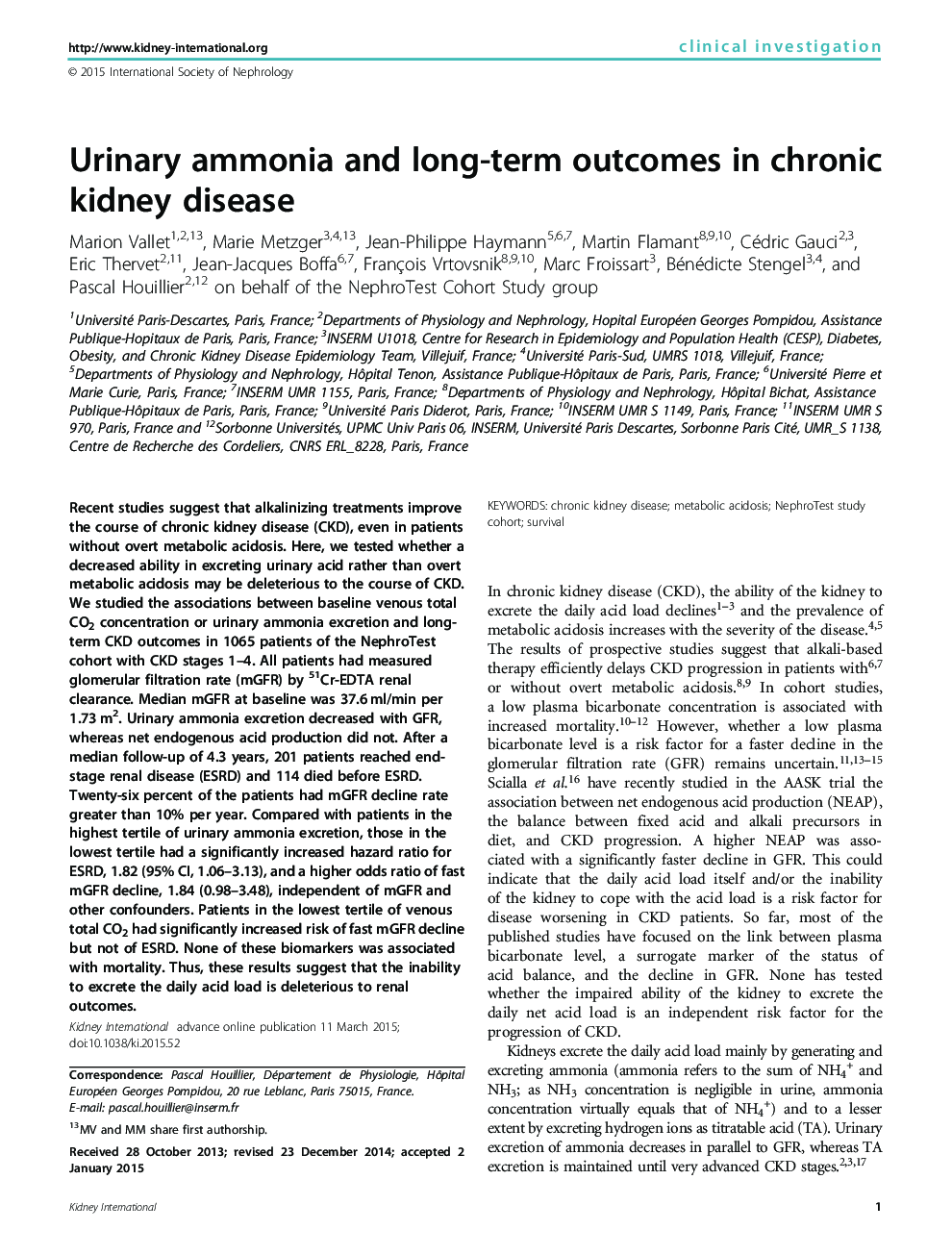| کد مقاله | کد نشریه | سال انتشار | مقاله انگلیسی | نسخه تمام متن |
|---|---|---|---|---|
| 6163982 | 1249454 | 2015 | 9 صفحه PDF | دانلود رایگان |
عنوان انگلیسی مقاله ISI
Urinary ammonia and long-term outcomes in chronic kidney disease
ترجمه فارسی عنوان
آمونیاک ادرار و نتایج بلند مدت در بیماری مزمن کلیه
دانلود مقاله + سفارش ترجمه
دانلود مقاله ISI انگلیسی
رایگان برای ایرانیان
کلمات کلیدی
موضوعات مرتبط
علوم پزشکی و سلامت
پزشکی و دندانپزشکی
بیماریهای کلیوی
چکیده انگلیسی
Recent studies suggest that alkalinizing treatments improve the course of chronic kidney disease (CKD), even in patients without overt metabolic acidosis. Here, we tested whether a decreased ability in excreting urinary acid rather than overt metabolic acidosis may be deleterious to the course of CKD. We studied the associations between baseline venous total CO2 concentration or urinary ammonia excretion and long-term CKD outcomes in 1065 patients of the NephroTest cohort with CKD stages 1-4. All patients had measured glomerular filtration rate (mGFR) by 51Cr-EDTA renal clearance. Median mGFR at baseline was 37.6 ml/min per 1.73 m2. Urinary ammonia excretion decreased with GFR, whereas net endogenous acid production did not. After a median follow-up of 4.3 years, 201 patients reached end-stage renal disease (ESRD) and 114 died before ESRD. Twenty-six percent of the patients had mGFR decline rate greater than 10% per year. Compared with patients in the highest tertile of urinary ammonia excretion, those in the lowest tertile had a significantly increased hazard ratio for ESRD, 1.82 (95% CI, 1.06-3.13), and a higher odds ratio of fast mGFR decline, 1.84 (0.98-3.48), independent of mGFR and other confounders. Patients in the lowest tertile of venous total CO2 had significantly increased risk of fast mGFR decline but not of ESRD. None of these biomarkers was associated with mortality. Thus, these results suggest that the inability to excrete the daily acid load is deleterious to renal outcomes.
ناشر
Database: Elsevier - ScienceDirect (ساینس دایرکت)
Journal: Kidney International - Volume 88, Issue 1, July 2015, Pages 137-145
Journal: Kidney International - Volume 88, Issue 1, July 2015, Pages 137-145
نویسندگان
Marion Vallet, Marie Metzger, Jean-Philippe Haymann, Martin Flamant, Cédric Gauci, Eric Thervet, Jean-Jacques Boffa, François Vrtovsnik, Marc Froissart, Bénédicte Stengel, Pascal Houillier,
